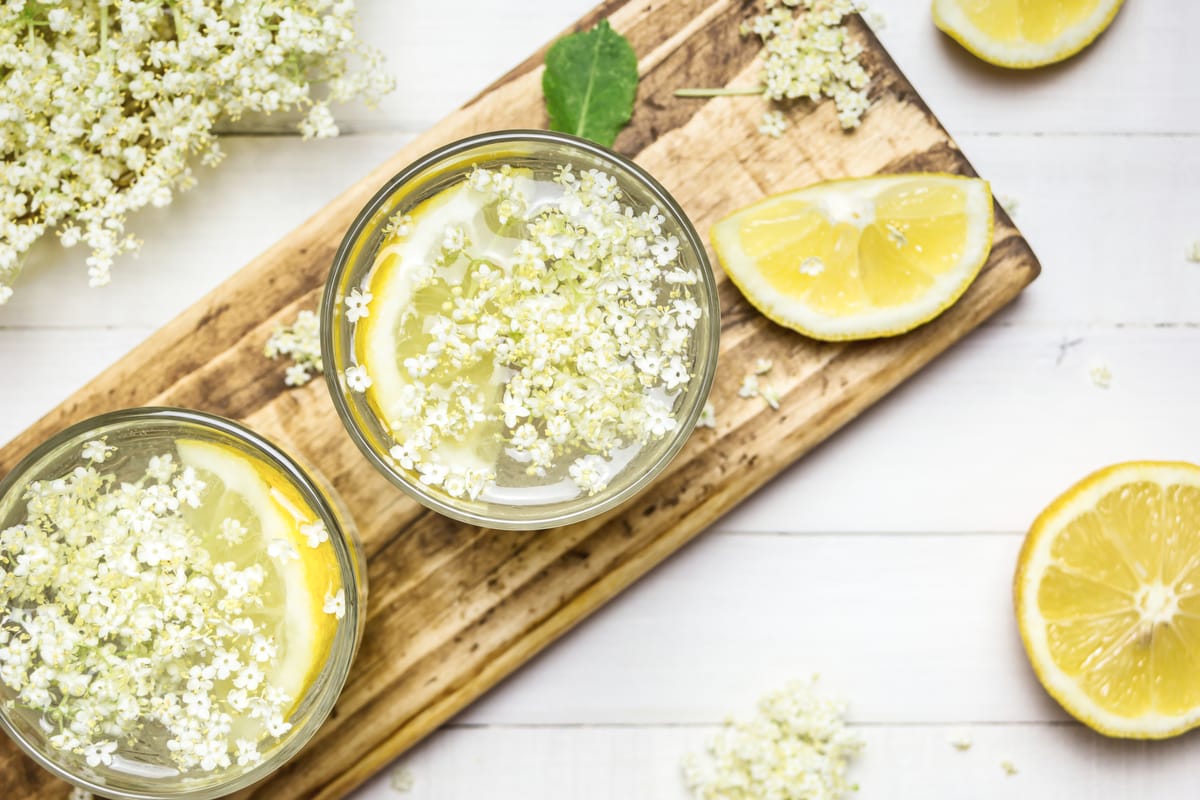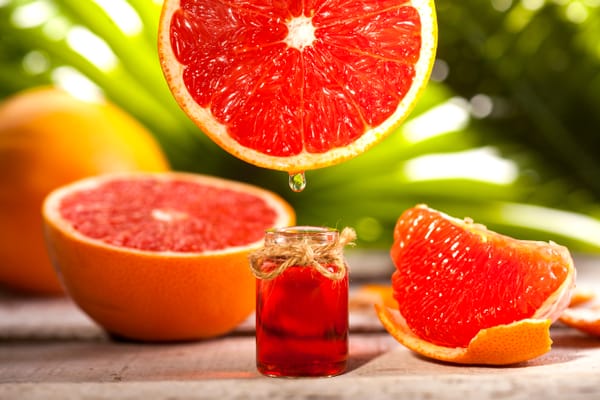What Does Elderflower Taste Like? Discover Its Unique Flavor
Wondering what does elderflower taste like? Learn about its delicate floral and citrusy notes in this guide.

Ever wondered what elderflower tastes like? If you're curious, you're not alone. I remember the first time I tasted it – a gentle burst of floral sweetness that left me intrigued. Elderflowers come from the elderberry bush, often harvested in early June. The flavor is subtle yet distinct, blending hints of pear, lychee, and a touch of honey.
This isn't just another trendy ingredient; it's been cherished for centuries. From syrups to liqueurs like St-Germain, elderflower adds an elegant twist to everything it touches.
Table of Contents:
- What is Elderflower and Where Does it Come From?
- Describing the Taste of Elderflower
- Popular Elderflower Products and Uses
- Elderflower in Cocktails and Mixology
- The Royal Wedding Cake and Elderflower's Rise in Popularity
- Conclusion
What is Elderflower and Where Does it Come From?
If you've ever sipped a refreshing elderflower liqueur or enjoyed the unique flavor of an elderflower soda, you might be wondering - what exactly is elderflower? Elderflower is the delicate blossom of the elderberry bush, a flowering plant that's native to Europe and North America. These small, creamy-white flowers have a distinctively floral aroma and flavor that's been used for centuries in traditional medicine and culinary applications.
The Elderberry Bush
The elderberry bush, also known as Sambucus, is a deciduous shrub that can grow up to 20 feet tall. It's known for its clusters of tiny, star-shaped flowers that bloom in late spring and early summer. These fragrant blossoms are the key ingredient in elderflower syrup, liqueurs, and other popular elderflower products. After the flowers have bloomed, the bush produces small, dark purple berries that are also used in cooking and herbal medicine.
Harvesting Elderflowers
Elderflowers are typically harvested in the late spring and early summer, depending on the climate. In the French Alps, where many elderflower liqueurs are produced, the flowers are picked in early June when they're at their peak. Harvesting elderflowers is a delicate process that's often done by hand to ensure the best quality blossoms are selected. The small, delicate flowers are carefully removed from the stems, leaving behind any green parts which can add bitterness. Once harvested, the elderflowers are quickly processed to capture their unique flavor and aroma. They may be steeped in sugar syrup to make elderflower cordial, infused into alcohol to create elderflower liqueurs, or dried for use in teas and other products. The short harvest season and delicate nature of elderflowers make them a prized ingredient that's synonymous with spring and summer. Their unique floral flavor has become increasingly popular in recent years, popping up in everything from craft cocktails to artisanal sodas.
Describing the Taste of Elderflower
If you've never tasted elderflower before, you might be wondering what all the fuss is about. Elderflower has a distinctive flavor profile that's sometimes hard to describe, but once you've tried it, you'll never forget it.
Floral and Citrusy Notes
The primary flavor of elderflower is, unsurprisingly, floral. It has a delicate, sweet aroma that's often compared to lychee or pear. On the palate, it's lightly sweet with subtle hints of citrus, like lemon zest or lime juice. Some people also detect notes of honey, musk, or grass in elderflower, adding to its complex flavor profile. It's a delicate, nuanced flavor that can be easily overpowered, so it's often used in combination with other complementary ingredients like citrus, herbs, or sparkling wine.
Elderflower in Baking and Cooking
The floral, citrusy notes of elderflower make it a popular ingredient in baking and cooking. It pairs particularly well with lemon, as in the famous lemon elderflower cake served at Prince Harry and Meghan Markle's royal wedding. Elderflower cordial or syrup can be used to flavor cakes, mousses, and other desserts, adding a subtle floral note that's perfect for spring and summer. It's also delicious in fruit salads, especially those featuring berries or stone fruits. In savory dishes, elderflower adds a unique twist to salad dressings, marinades, and sauces. A splash of elderflower cordial can brighten up a simple chicken or fish dish, or add a floral note to a tangy vinaigrette. The key with elderflower is to use it sparingly, as a little goes a long way. Too much can overpower other flavors and lead to a soapy or perfume-like taste. When used judiciously, however, elderflower adds a sophisticated, memorable flavor that's sure to impress.
Popular Elderflower Products and Uses
Elderflower's unique flavor has made it a popular ingredient in a variety of products, from liqueurs and syrups to sodas and teas. Here are some of the most common elderflower products you'll find on the market.
Elderflower Liqueurs
Elderflower liqueur is perhaps the most well-known elderflower product, thanks in large part to the popularity of St-Germain. This French liqueur, made from freshly harvested elderflowers, has a delicate floral flavor and a subtle sweetness that makes it a versatile cocktail ingredient. Other popular elderflower liqueurs include Giffard Wild Elderflower Liqueur and Bols Elderflower Liqueur, as well as a growing number of craft brands. These liqueurs can be sipped on their own or used to add a floral note to cocktails like the French 75 or the Hugo spritz.
Elderflower Syrups and Cordials
For those who prefer a non-alcoholic option, elderflower syrup or cordial is a great choice. These sweet, concentrated syrups are made by steeping elderflowers in sugar and water, creating a flavorful elixir that can be used in a variety of ways. Elderflower cordial is a popular ingredient in soft drinks and cocktails, adding a floral sweetness to everything from lemonade to gin and tonics. It can also be used to flavor desserts, or simply mixed with still or sparkling water for a refreshing summer beverage.
Elderflower in Beverages
Elderflower has become an increasingly popular flavor in the beverage world, popping up in everything from craft sodas to hard seltzers. Elderflower lemonade and elderflower soda are two popular options, offering a floral twist on classic summer drinks. You'll also find elderflower in a variety of teas, both hot and iced. Its delicate flavor pairs well with green tea, white tea, and herbal blends, adding a subtle sweetness and floral aroma. As the popularity of elderflower continues to grow, we can expect to see even more innovative elderflower products hit the market. From elderflower-infused beers and ciders to elderflower-flavored chocolates and ice creams, the possibilities are endless for this versatile botanical.
Elderflower in Cocktails and Mixology
One of the most popular uses for elderflower is in cocktails and mixed drinks. Its delicate, floral flavor adds a unique twist to classic cocktails and has inspired a whole new generation of elderflower-focused drinks.
Classic Elderflower Cocktails
The most well-known elderflower cocktail is undoubtedly the St-Germain spritz, a simple combination of elderflower liqueur, sparkling wine, and club soda. This refreshing, effervescent cocktail has become a modern classic, beloved for its easy-drinking nature and floral flavor. Other popular elderflower cocktails include the French Gimlet, which combines gin, elderflower liqueur, and lime juice, and the Elderflower Martini, a floral twist on the classic cocktail made with vodka or gin, elderflower liqueur, and a splash of lemon juice.
Elderflower in Spritzes and G&Ts
Elderflower's light, floral flavor makes it a natural fit for spritz-style cocktails and gin and tonics. The Hugo spritz, a popular summer cocktail in Europe, combines elderflower syrup, prosecco, and mint for a refreshing, easy-drinking tipple. Adding a splash of elderflower liqueur or syrup to a classic gin and tonic is an easy way to elevate the drink and add a subtle floral note. The combination of juniper, citrus, and elderflower is a match made in cocktail heaven.
Mixing with Elderflower Liqueur
Elderflower liqueur is an incredibly versatile cocktail ingredient that plays well with a variety of spirits and flavors. Its delicate sweetness and floral aroma make it a great match for gin, vodka, and white wine, as well as citrus, herbs, and spices. When mixing with elderflower liqueur, it's important to use a light hand, as its flavor can easily be overpowered. A little goes a long way, so start with a small amount and adjust to taste. Some simple elderflower liqueur cocktails to try include the St-Germain and Champagne, which combines elderflower liqueur and bubbly for a simple, elegant drink, or the Elderflower Collins, a floral twist on the classic Tom Collins made with gin, lemon juice, elderflower liqueur, and soda water. As the popularity of elderflower continues to grow in the cocktail world, we can expect to see even more creative and delicious elderflower drinks on bar menus around the world. Whether you prefer a simple spritz or a complex craft cocktail, there's an elderflower drink out there for every taste and occasion.
The Royal Wedding Cake and Elderflower's Rise in Popularity
Elderflower has been enjoying a surge in popularity in recent years, thanks in part to a certain royal wedding cake. In 2018, Prince Harry and Meghan Markle chose a lemon elderflower cake for their wedding reception, sparking a renewed interest in this floral flavor.
Prince Harry and Meghan Markle's Wedding Cake
The royal wedding cake, created by pastry chef Claire Ptak of London's Violet Bakery, featured lemon sponge cakes drizzled with elderflower syrup and filled with lemon curd and elderflower buttercream. The cake was decorated with fresh flowers and served at the couple's reception at Windsor Castle. The choice of a lemon elderflower cake was seen as a break from tradition, as royal wedding cakes have typically been dense fruitcakes. The light, floral flavor of the elderflower cake was a nod to the spring season and a reflection of the couple's modern tastes.
Elderflower's Boost in Popularity
The royal wedding cake put elderflower in the spotlight and sparked a surge in interest in this floral flavor. Following the wedding, searches for elderflower recipes increased by 115% on Pinterest, and sales of elderflower cordial and liqueur skyrocketed. Bakeries and home cooks alike were inspired to create their own versions of the royal wedding cake, with lemon elderflower becoming a popular flavor combination for cakes, cupcakes, and other desserts. Elderflower also started popping up in more savory dishes, like salad dressings and cocktails. The popularity of elderflower shows no signs of slowing down, as more and more people discover the delicate, floral flavor of this unique ingredient. Whether you're sipping an elderflower cocktail or biting into a lemon elderflower cupcake, there's no denying the appeal of this trendy flavor. As the world continues to embrace floral flavors and natural ingredients, elderflower is poised to become a staple in the culinary world. Its versatility and delicate flavor make it a favorite among chefs, mixologists, and home cooks alike, and we can expect to see even more elderflower-infused products and recipes in the years to come.
Key Takeaway:
Elderflower has a unique, delicate floral flavor with hints of citrus. It's popular in liqueurs, syrups, and cocktails.
Conclusion
Elderflower has carved out its niche with good reason. So if you ever find yourself asking "what does elderflower taste like," now you know it's more than just a pretty flower – it's an experience worth savoring.
From drinks to desserts, let this delicate bloom add some magic to your life!




